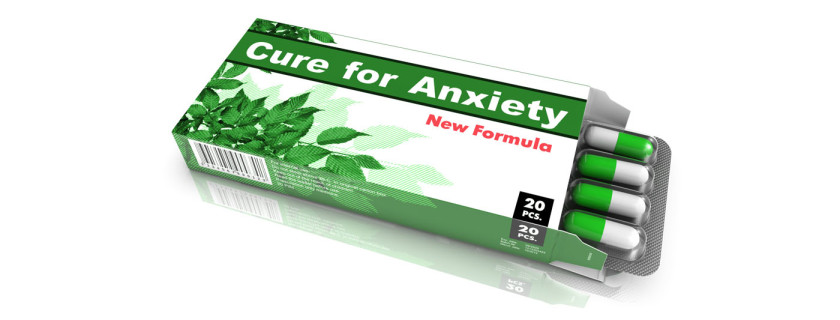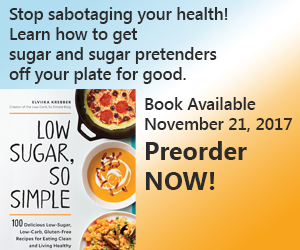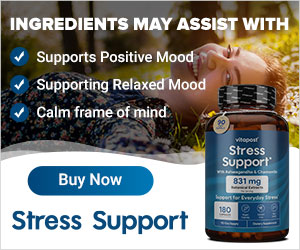It’s quite painful while it lasts, impacting not only the mental and emotional well-being of a person but often showing itself up as physical symptoms. Modern lifestyle has made anxiety a major health problem, manifesting itself in different forms.
While a multitude of treatments – from diet to exercise to meditation, vitamins to supplements, yoga and alternative or holistic cures – are used to tackle anxiety, medications are, more often than not, essential to addressing at least the overt symptoms of the disease.
Given the plethora of medications available for anxiety treatment, making the correct choice can often be a difficult proposition, even for your general physician. So how can you go about choosing the best anti-anxiety medication?
The ONLY holistic method to get rid of anxiety!
Identify the kind of anxiety problem
Anxiety, as mentioned earlier, can be of different types. Generalized anxiety is just one form of the problem; panic attacks, social anxiety, phobias, depression are the other kinds included under the broad umbrella of anxiety. In its more severe forms, anxiety can assume the shape of post traumatic stress disorder (PTSD) and obsessive-compulsive disorder (OCD). Social phobia usually afflicts a person who’s afraid of criticism, humiliation or embarrassment, especially in the public. Even eating in front of others can be a horrendous task for such a person. OCD is related mainly to strange thoughts and fears that affect a person’s behavior even though they consider the fear to be stupid, irrational or downright silly. So if you have the tendency to be constantly washing your hands to get rid of germs (real or imagined), you’re probably suffering from OCD. PTSD is another manifestation of anxiety, which follows a traumatic event in a person’s life. The event, if followed up for more than a month with troubling dreams and difficulty in relaxing, assumes the form of PTSD. Victims of PTSD tend to avoid all things connected with the event.
Types of anxiety medications
The kind of anxiety problem you may be suffering is a major factor in determining the type of medication required for its treatment. Different anxiety symptoms can affect different parts of the body or mind, and hence require different drugs for their alleviation.
Medication for panic attacks
Panic or anxiety attacks, for instance, necessitate medications that either help counter the anticipatory symptoms of anxiety or tackle the actual anxiety attack.
SSRIs and benzodiazepines
Antidepressants are usually the best option for panic attacks. Common antidepressants include the benzodiazepines and the selective serotonin reuptake inhibitors (SSRIs). A combination of the two can also be used to treat anxiety attacks. SSRIs, incidentally, are preferred over tricyclic antidepressants because of their fewer and milder side effects. SSRIs commonly used to fight anxiety attacks include fluoxetine, fluvoxamine, sertaline, paraxetine, escitalopram and citalopram. It’s also possible to control anxiety attacks with certain SSNRs (serotonin-norepinephrine reuptake inhibitors) such as venlafaxine. Among benzodiazepines, the best medications are alprazolam, alprazolam XR and clonazepam. Alprazolam, in particular, acts pretty quickly and is quite effective as an anticipatory medication.
Tricyclic antidepressants
Despite some side effects, tricyclic antidepressants also continue to be used extensively for treating anxiety, mainly because of their proven track record. This class of medications includes imipramine, nortiptyline, desipramine, nortiptyline, amitriptyline, doxepin, clomipramine and trazodone. These drugs are also found to be quite useful in the treatment of panic disorders.
Monoamine oxidase inhibitors
Monoamine oxidase inhibitors (MAOIs), such as phenelzine and tranylcypromine, have also been found to be beneficial in treating panic attacks and disorders.

Medication for OCD
While medications don’t help prevent OCD, they do play a significant role in subduing the intensity of the distress and worry caused by it. Apart from SSRIs, antidepressants like clomipramine and venlafaxine are also helpful in controlling these symptoms. In some patients, MAOIs, as well as imipramine, venlafazine and alprazolam, are also found to be useful. If OCD is linked with mood disorder, you could also go for lithium. Symptoms of tics in patients of OCD can be addressed with the help of atypical antipsychotics. This category of medications includes quetiapine, clozapine and risperidone. However, MAOIs and tricyclic antidepressants are not generally helpful in treating OCD symptoms.
Medication for generalized anxiety
Generalized anxiety, as the name suggests, is a broad term covering general anxiety symptoms caused by no specific reason. So if you tend to worry about ordinary, everyday things and situations, it’s likely that the cause is general anxiety. SSRIs are found to be quite beneficial in such cases, as are many of the tricyclic antidepressants. Apart from tazodone, venlafaxine and buspirone, other drugs found useful in the treatment of general anxiety are the benzodiazepines (alprazolam, chlordiazepoxide, lorazepam, oxazepam and diazepam).
Medication for phobia
A phobia is an unexplained fear of facing a certain situation or an object that evokes a sense of anxiety in a person. Like most other forms of anxiety, medications work to minimize phobia related tension. Benzodiazepine taken about an hour before exposure to such situation or object can help curb the feeling of anxiety in most cases. When the phobia relates to social anxiety, benzodiazepine can also be replaced with beta blockers, SSRIs, trazodones and venlafaxines. Beta blockers, particularly propranolol and atenolol, are seen to be most effective in treating social phobia. MAOIs are generally found not to be helpful in such cases as they can trigger an exaggerated response in the phobic person.
Medication for anxiety with depression
Depression is often seen to accompany anxiety and needs to be treated concurrently. Tricylic antidepressants are useful in treating the symptoms of both, depression and anxiety or panic, in such cases.
Medication for PTSD
Trauma-related stress or anxiety can be tough to deal with but medications do help in reducing some of symptoms, while relieving the sufferer of the resulting depression. SSRIs are most effective in PTSD treatment, though other medications such as MAOIs and tricylic antidepressants also seem to be helpful in some cases.
The ONLY holistic method to get rid of anxiety!
Conclusion
Medications, as mentioned earlier, usually help in the alleviation of some or all of the symptoms of anxiety, and the best choice depends on the form of anxiety that a person is suffering from. With the problem of anxiety becoming more widespread than ever before, scientists continue to research on new drugs to treat the condition. So there’s hope for even better and more effective medications to treat anxiety in the future. Despite the importance of the right medication, holistic methods and the right diet to beat anxiety should not be forgotten, as treating anxiety with holistic methods drastically reduces the need for medication — and in the best case — completely cures the anxiety.







You must be logged in to post a comment.